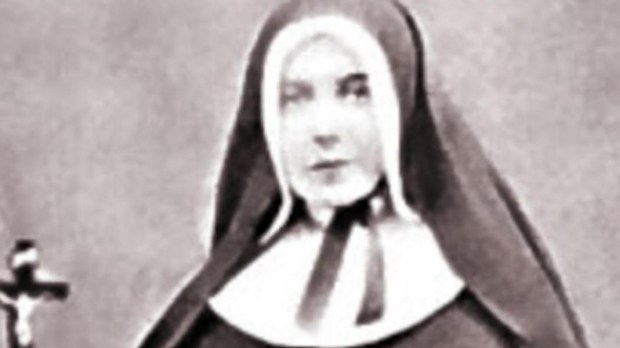Elizabeth Prout was born in Shrewsbury, England, on September 2, 1829. Her dad, Edward Prout, was a baptized Catholic who did not practice his faith. He was a skilled craftsman and made casks that breweries used in brewing beer. Her mom, Anne Prout, was a devout Anglican. She made sure her daughter was baptized into the Church of England, which was done on September 17, 1829. The family continued to live in Shrewsbury until Elizabeth was 11 years old. That was the year the Coleham Brewery, which employed Edward, closed. The Prout family had lost their income.
Nothing much is known about the Prout family history for the next 10 years. The family story reappeared in 1841 when they were living in Stone, Staffordshire. Edward was once again employed at his trade as a cooper making casks to brew beer. Elizabeth’s young life is more or less unknown. We might guess that her adolescent years were probably like the era’s social history tells us.
Elizabeth’s sound judgment, the ability to express herself and teach others suggest a happy home life and a traditional Christian upbringing of the style of Victorian England, with a focus on domestic skills.
On September 2, 1841, Elizabeth celebrated her 21st birthday. The next few years were peaceful in the Prout home. Anne busied herself building her daughter’s dowry for the impending engagement she knew would one day come. Elizabeth was dating, but unknown to her mom and dad, she was harboring other thoughts.
When Elizabeth was still in her early 20s, she heard a sermon from a Passionist missionary from Italy. His name was Father Dominic Barberi. His words were powerful, and the young woman immediately took a deep interest in the Catholic faith. Her mother was aware of this and was not pleased. Catholicism was hated in England and many blamed it for all the ills being suffered by the people. But Elizabeth knew she had been called and, still in her 20s, converted to Catholicism. Soon after, she began to feel a calling to the religious life.
Elizabeth sought advice from a close friend of Father Berberi’s, Father Gaudentius Rossi. Father Rossi encouraged her to join the Sisters of the Infant Jesus in Northampton. Elizabeth joined the order in 1848 and found much happiness. Sadly, her health was poor, and she could not maintain the other sisters’ rigorous schedule. She returned home to her parents, who welcomed her back.
Her mother nursed her daughter back to health and was expecting Elizabeth to return to the Anglican church. But Elizabeth wanted nothing more than to attend Mass and resume her Catholic faith. She told her mom she would always be Catholic. In due time her mom converted to Catholicism, and her dad returned to the faith. Elizabeth once again sought advice from Father Rossi. He was giving a parish mission in Manchester. His advice to Elizabeth was to come to Manchester and teach in the parish school.
Elizabeth found the conditions in Manchester beyond deplorable. They were so squalid it was hard for her to believe people lived there. She began her work by visiting the sick, the poor, and the handicapped and did her best to help the Irish immigrants who had fled the Great Famine in Ireland. She and a few companions joined together to form a community to help the oppressed in the area. Father Rossi convinced them to create a congregation. A house was acquired near the school, and this is where they lived and worked and began their Order.
Life for the sisters was hard, and the work was never-ending. Conditions were horrendous. Many left after a short time. New recruits came, and Father Rossi drew up a rule for the fledgling community. The women received habits from Father Croskell, the pastor, and Elizabeth Prout became Mother Mary Joseph of Jesus. When the venture was launched in March of 1851, only two of the original 30 companions were still there. Four more ladies joined them, and on November 21, 1852, they became known as the Catholic Sisters of the Holy Family. Today the Order is called the Sisters of the Cross and Passion (part of the Passionists).
Pope Pius IX recognized the Order in 1863. Elizabeth was named Mother General. She died on January 11, 1864, only 43 years old. She was declared a Servant of God in 1978, and on January 21, 2021, she was declared Venerable by Pope Francis. She is now in line for beatification.
Years after her passing those who came to know her story dubbed her the Mother Teresa of Manchester because of her efforts to minister to the needy, especially children in the most squalid conditions.

